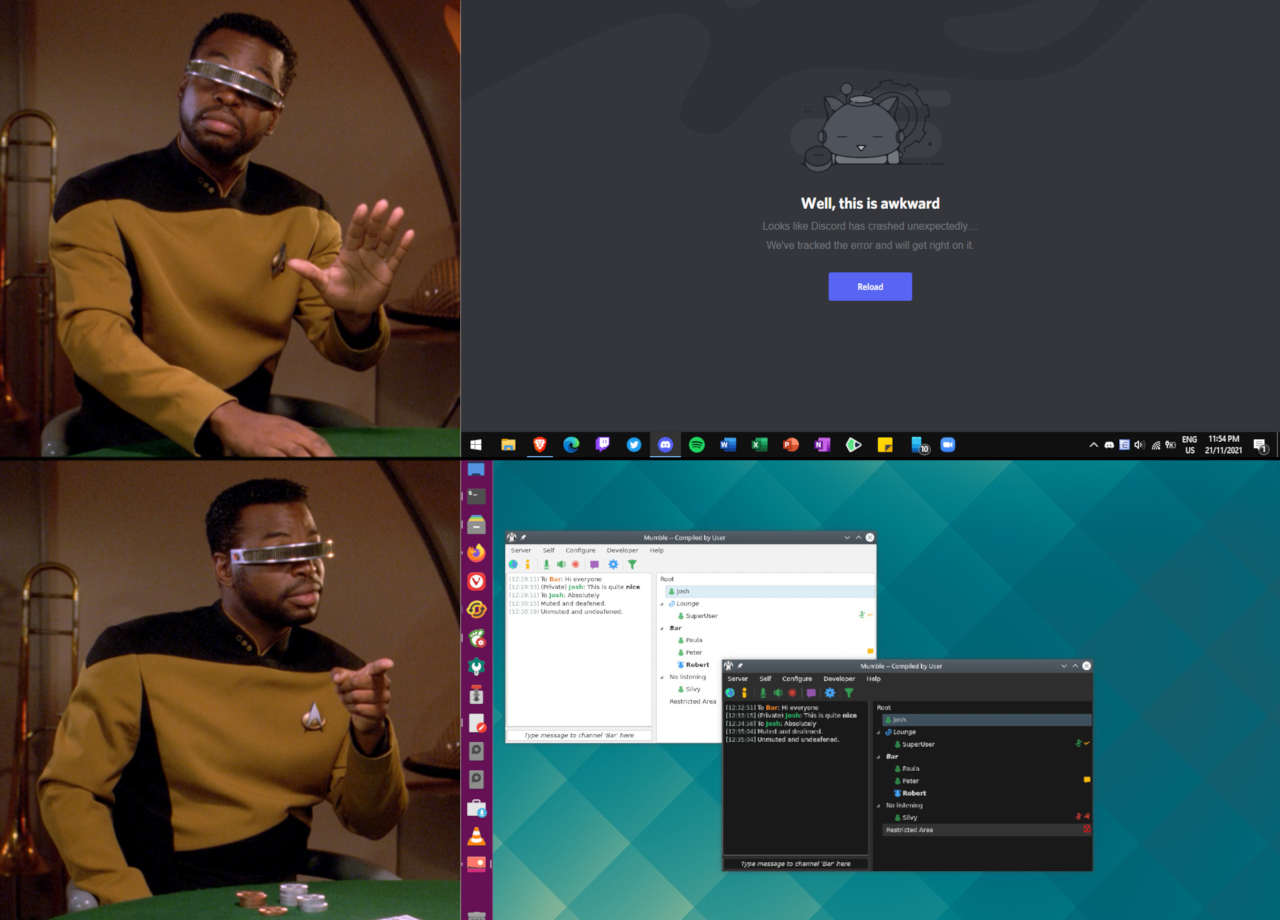Discord is an Inferior Alternative to Mumble
Apr. 17, 2024 [Technology] [Proprietary] [Libre] [Privacy-Security] [Advertising] [Phones] [Memes]In 2015 the aptly named “Discord” went about “solving” a problem that had already long since been solved: in-game voice chat. The role of voice chat had been fulfilled by Mumble since a decade earlier. What new innovations has Discord brought to the table? Let’s walk through some of its major features.

-
Discord compels its subjects to surrender a phone number.
So not only is any expectation of privacy or anonymity obliterated, but one is also confined to a single account. Subjects of Discord are thus often conditionally tethered to the ownership of a mobile phone. Those who wish not to be datamined are SOL. -
Discord is not self-hostable.
It is infeasible to host a server with Discord since they do not supply any server binaries with which to create an instance. Worse yet, they seem to have re-educated their subjects that the term server means any kind of lobby or chatroom regardless of where or how it is hosted. And the only way to connect with Discord is through their own officially supplied public instances. Those who go through the rigamarole to sign up are merely granted access to a lobby that is benevolently created and hosted for them by Discord. Thus, most zoombies believe that they “own” a server.
-
Discord is proprietary software.
Discord’s subjects are forced to use the vendor’s client. The vendor regularly blocks third party and liberated client software. Downstream of this, the Discord client can only be run on environments for which the vendor has produced binary releases. E.g. ARM and x86 only. -
Discord is spyware.
It is long established fact that Discord is spyware [1]. Like many proprietary programs, Discord gathers metrics about the user, their system and their activity, collecting information about other running processes and in turn using it for the purposes of advertising. -
Discord is hopelessly bloated.
They felt it necessary to integrate an entire social networking disservice within a gaming voice chat application. A gaming voice chat application does not need to have timelines, feeds, profiles, bios, etc. -
Discord is centralized.
Again, not possible to self-host == not possible to use without going through the vendor’s infrastructure. Users are left totally at their mercy. -
Discord is adware.
Discord implements Pavlovian rewards-based integrated advertising within the client. Imagine installing a program to chat with your buddies in-game, only to be met with nagging ad popups seeking to condition you into certain behaviors? -
Discord utilizes paywalls.
Some lobbies are made only accessible with paid subscriptions. Transmitting payment information further erodes user privacy and increases dependency. -
Discord is censorious.
Because Discord is centralized, and because it requires users to dox themselves, it enables an incredible capacity for censorship. Going so far as shutting down users for off-site behavior. -
Discord requires users to submit to a EULA.
It is not possible to use Discord without cucking yourself. -
Discord does not support positional audio.
Despite billing itself as gaming software, Discord fails to support positional in-game audio. A feature Mumble has sported since its earliest days.
As we can see, Discord just isn’t ready for primetime yet (we can turn normie lingo around on them